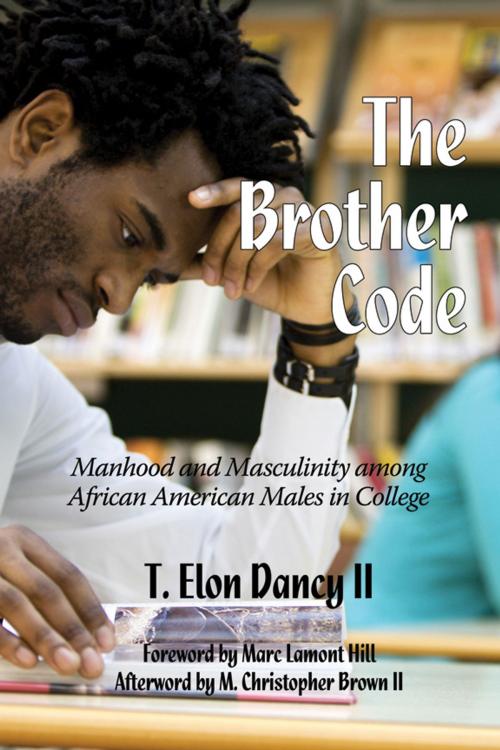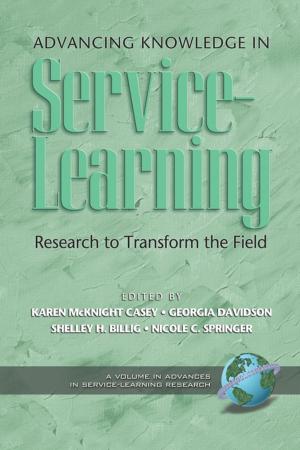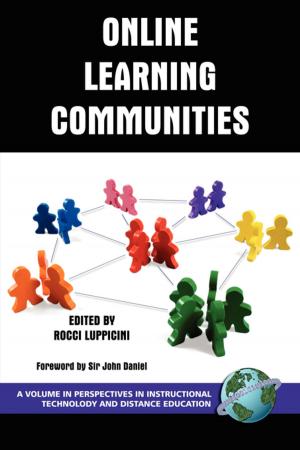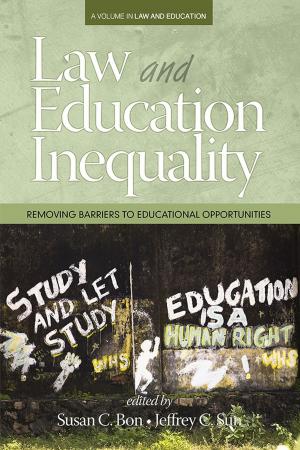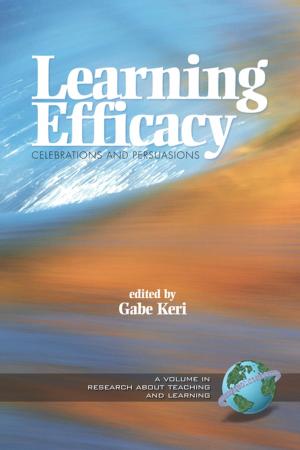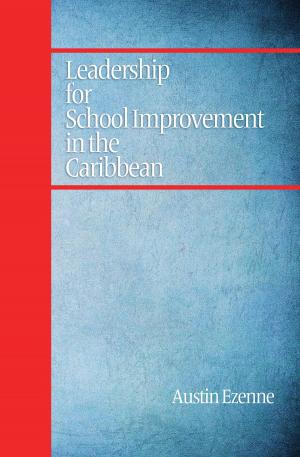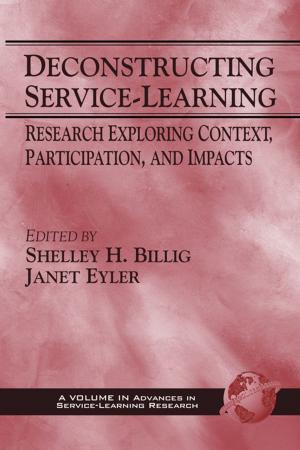The Brother Code
Manhood and Masculinity among African American Men in College
Nonfiction, Reference & Language, Education & Teaching, Educational Theory, Multicultural Education, Higher Education| Author: | T. Elon Dancy II | ISBN: | 9781617357626 |
| Publisher: | Information Age Publishing | Publication: | October 1, 2012 |
| Imprint: | Information Age Publishing | Language: | English |
| Author: | T. Elon Dancy II |
| ISBN: | 9781617357626 |
| Publisher: | Information Age Publishing |
| Publication: | October 1, 2012 |
| Imprint: | Information Age Publishing |
| Language: | English |
The Brother Code: What is the role of manhood and masculinity in the lives of African American males in college? How do manhood norms influence decisions within and beyond college? How might mothers and fathers differentially affect manhood and masculinity in their sons? What are African American’s men unique ways of knowing themselves and their surroundings? The Brother Code: Manhood and Masculinity among African American Men in College situates itself at the intersection of higher education and cultural studies to address these questions and more. Primarily, this book offers colleges and universities a penetrative gaze into a complex web of identities—the manhood of African American males in college. Yet the book also seizes a rare opportunity in higher education research to review six historical eras of African American manhood as well as the troublesome relationship between African American males and education in general. This knowledge is important for understanding all aspects of African American male participation in college, including enrollment, retention, curricular, and cocurricular involvement. Based on an empirical study, the data in this book emerged from oneonone interviews in which 24 African American males enrolled in 12 colleges discussed how manhood matters in their social and college lives. The aim is to help unearth the marginalized topics of manhood, gender, and masculinity in males generally but, more specifically among African American males, a marginalized student group in education. Using an interdisciplinary approach, the book draws upon literature in history, African American studies, gender studies, sociology, cultural studies, psychology, and anthropology.
The Brother Code: What is the role of manhood and masculinity in the lives of African American males in college? How do manhood norms influence decisions within and beyond college? How might mothers and fathers differentially affect manhood and masculinity in their sons? What are African American’s men unique ways of knowing themselves and their surroundings? The Brother Code: Manhood and Masculinity among African American Men in College situates itself at the intersection of higher education and cultural studies to address these questions and more. Primarily, this book offers colleges and universities a penetrative gaze into a complex web of identities—the manhood of African American males in college. Yet the book also seizes a rare opportunity in higher education research to review six historical eras of African American manhood as well as the troublesome relationship between African American males and education in general. This knowledge is important for understanding all aspects of African American male participation in college, including enrollment, retention, curricular, and cocurricular involvement. Based on an empirical study, the data in this book emerged from oneonone interviews in which 24 African American males enrolled in 12 colleges discussed how manhood matters in their social and college lives. The aim is to help unearth the marginalized topics of manhood, gender, and masculinity in males generally but, more specifically among African American males, a marginalized student group in education. Using an interdisciplinary approach, the book draws upon literature in history, African American studies, gender studies, sociology, cultural studies, psychology, and anthropology.
